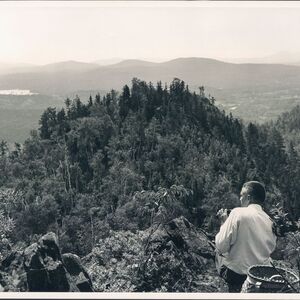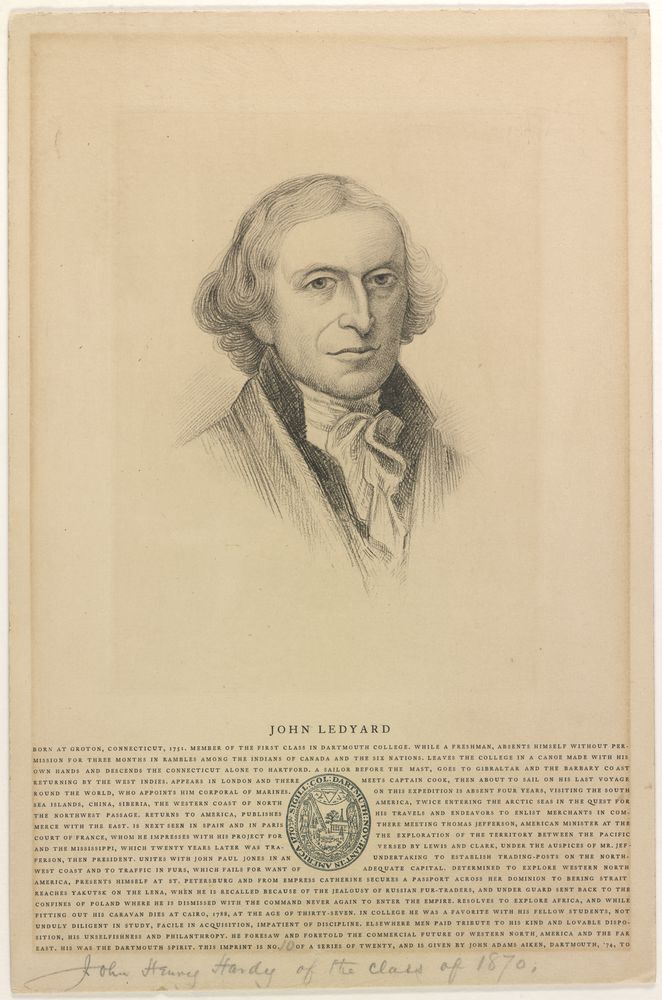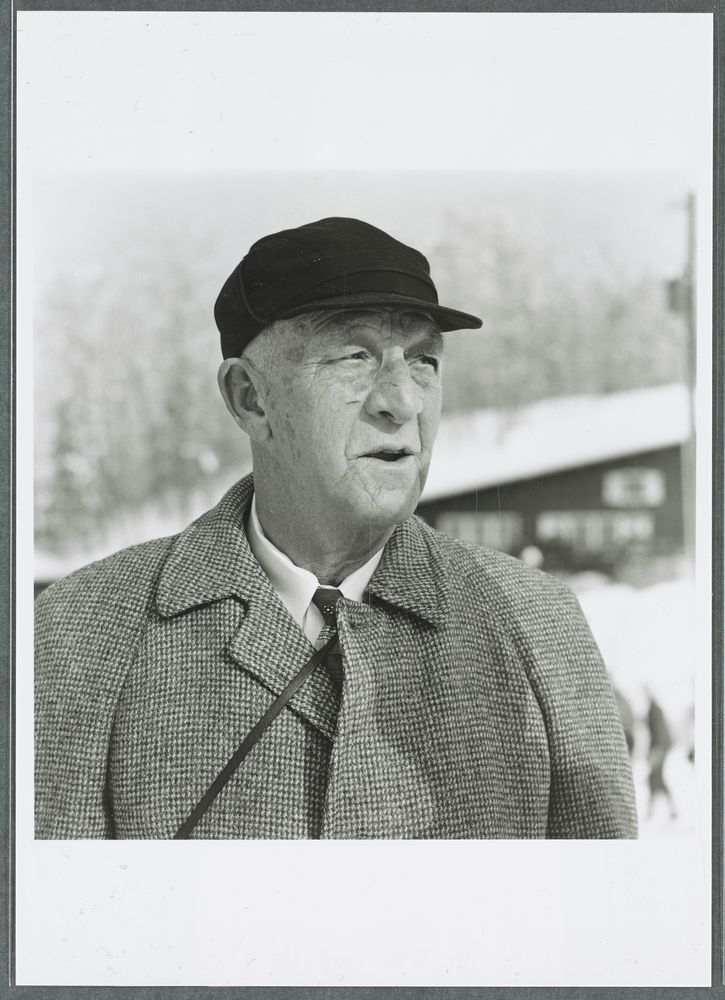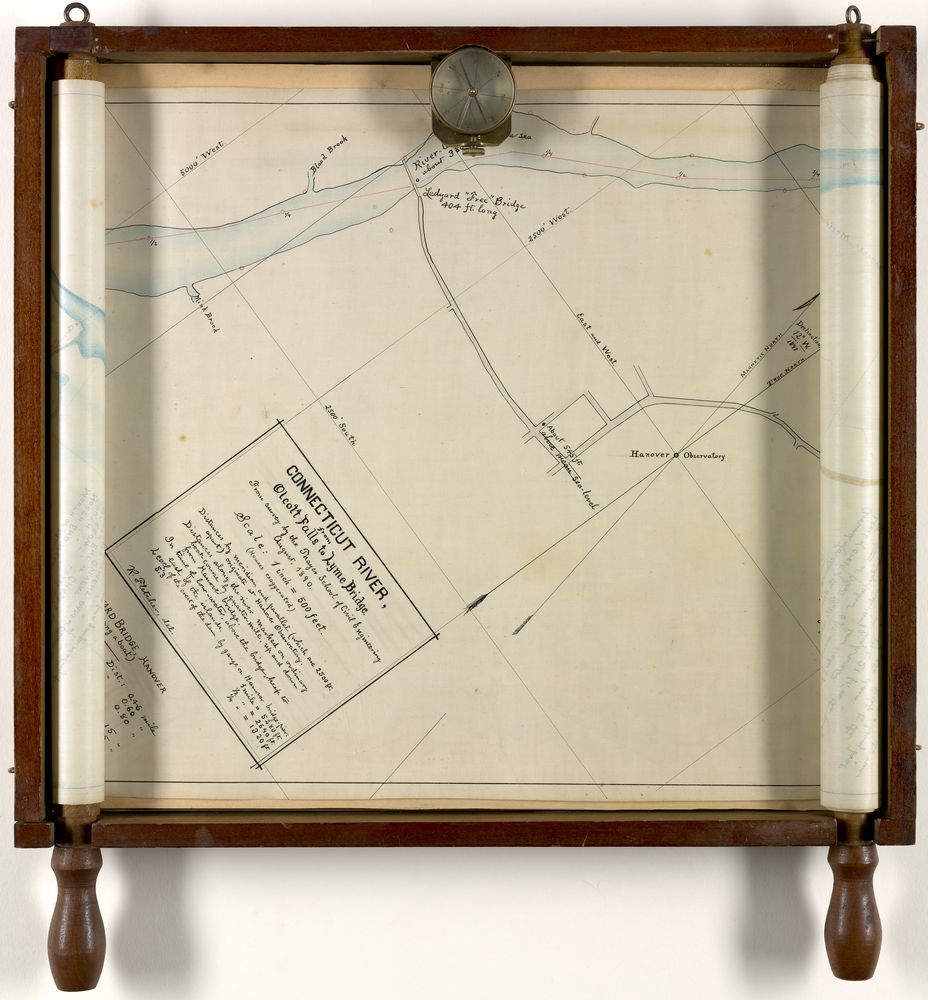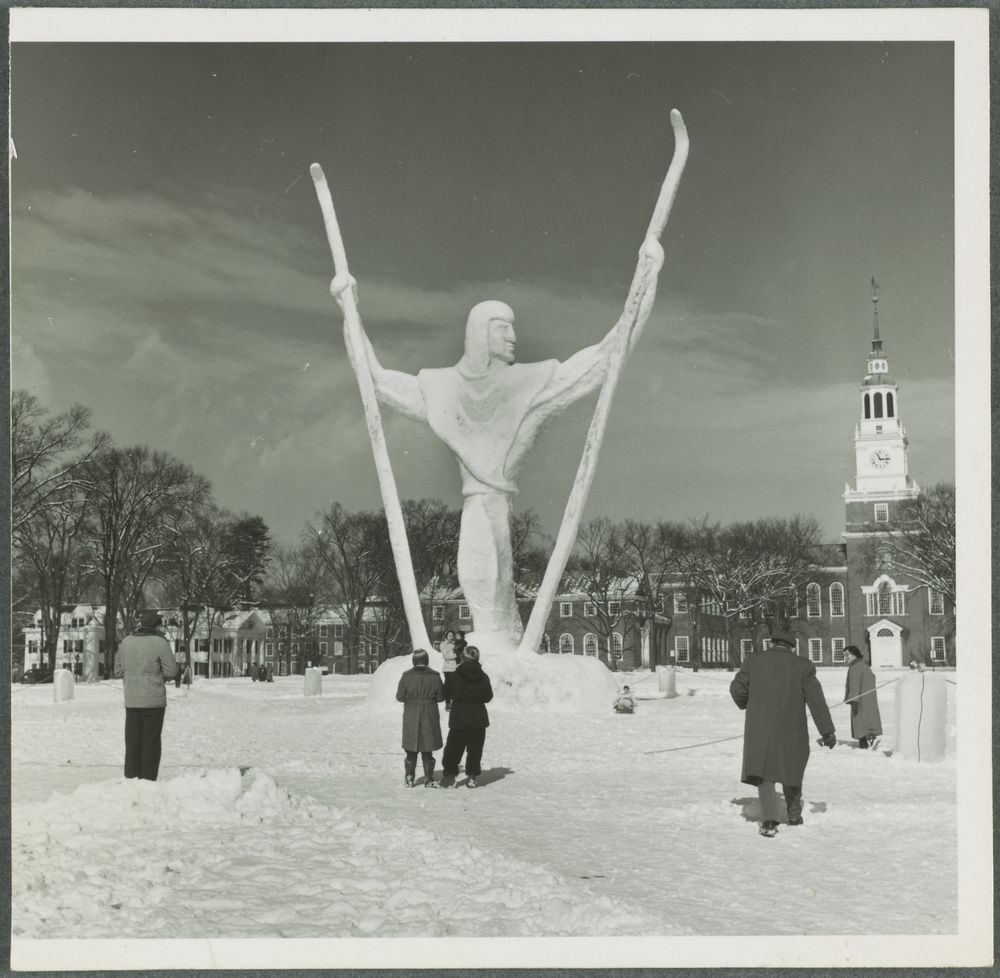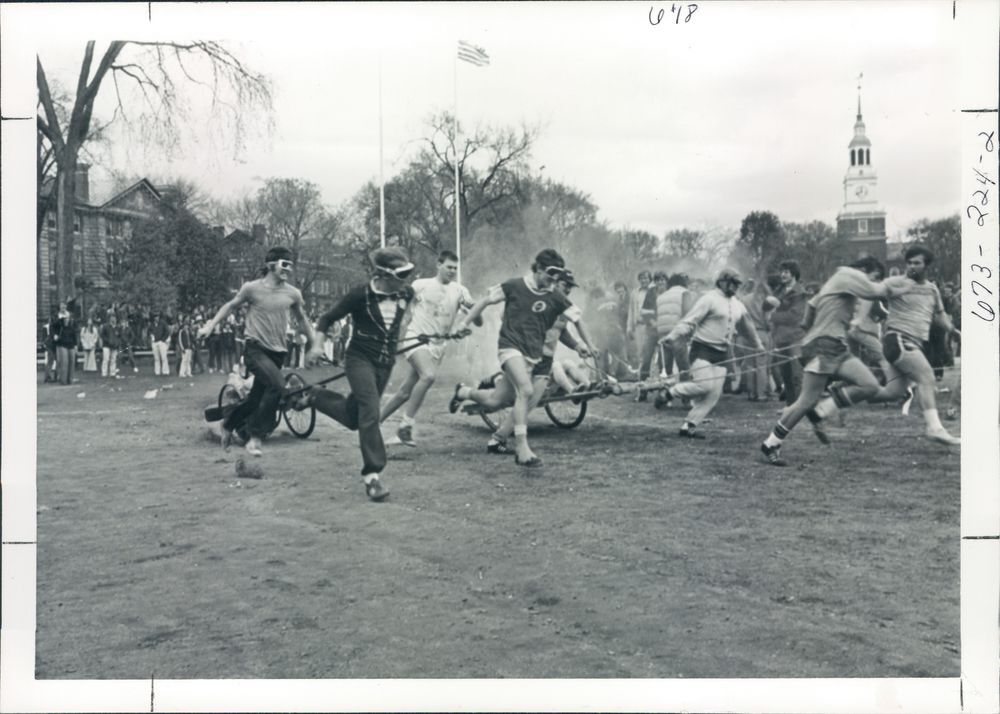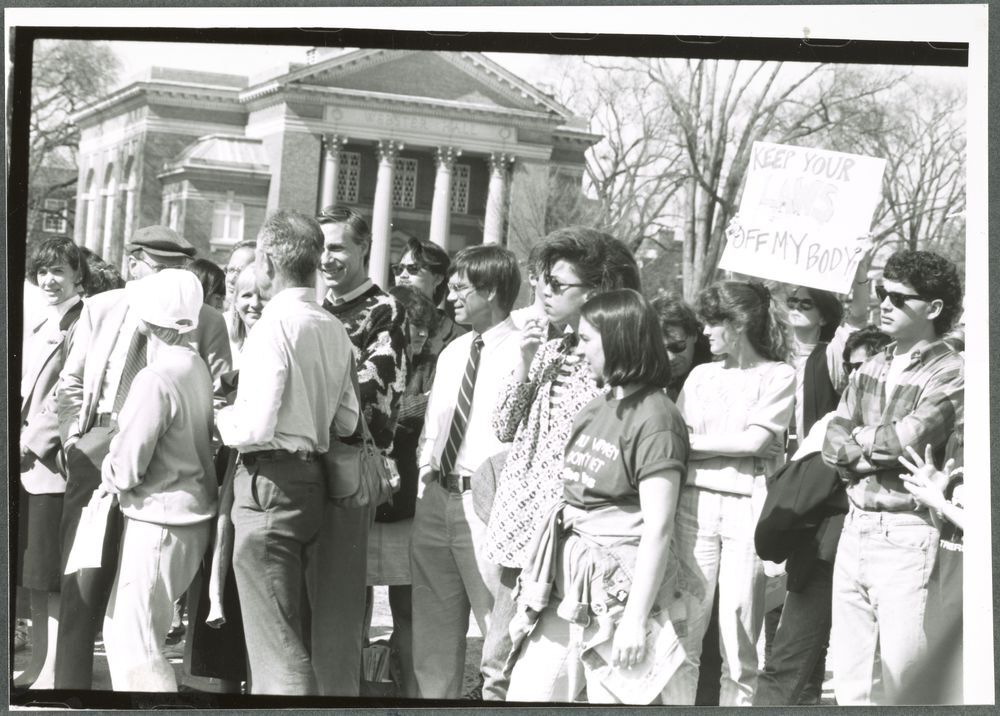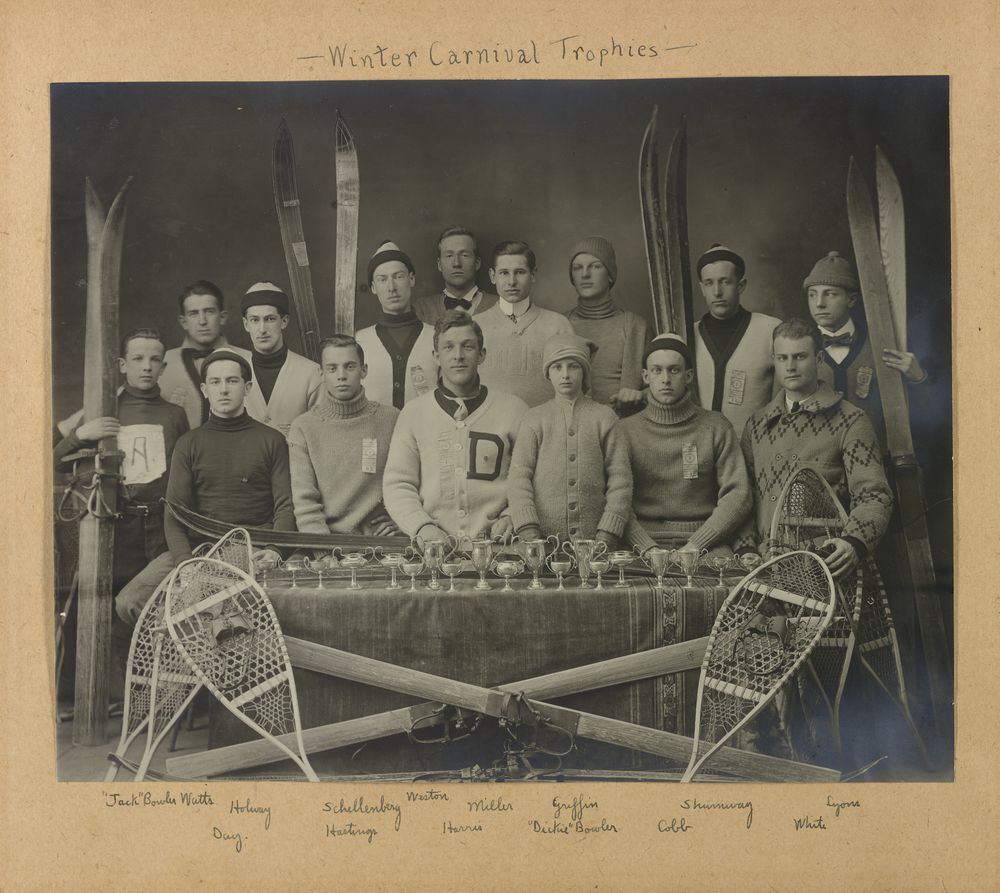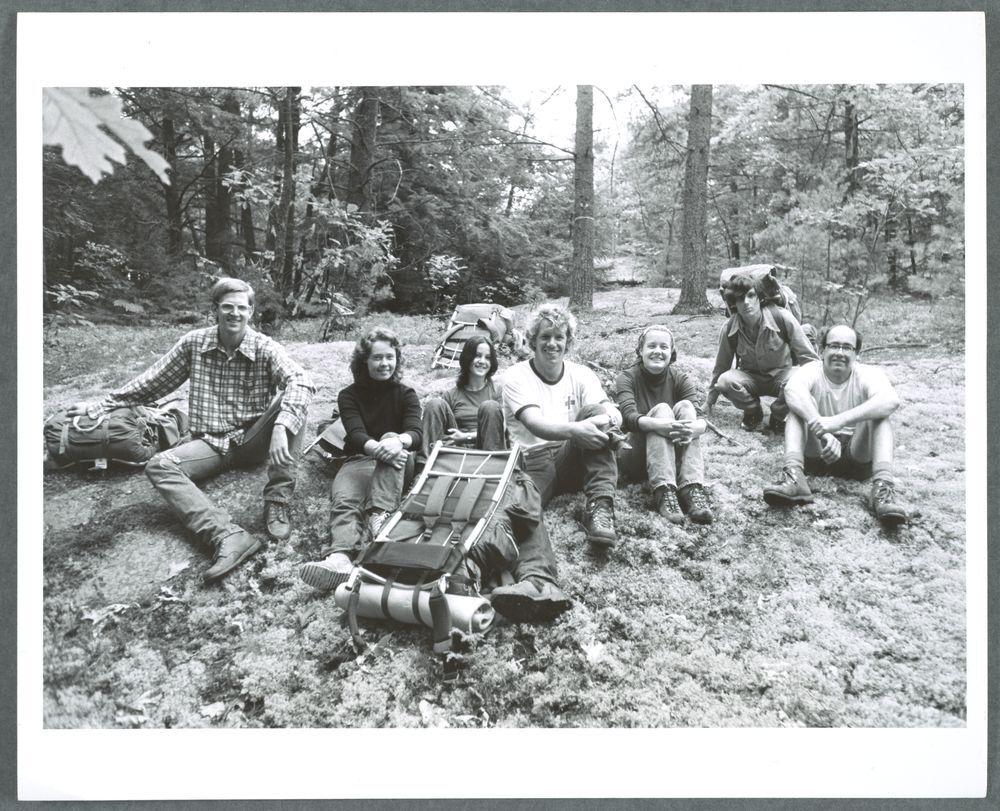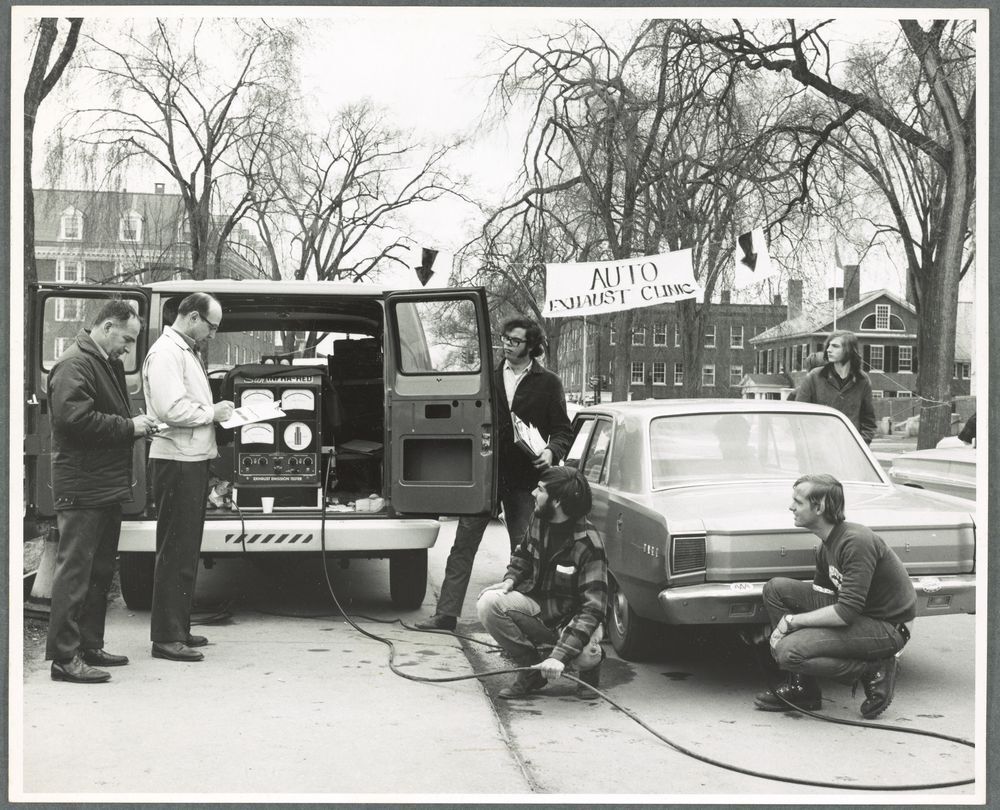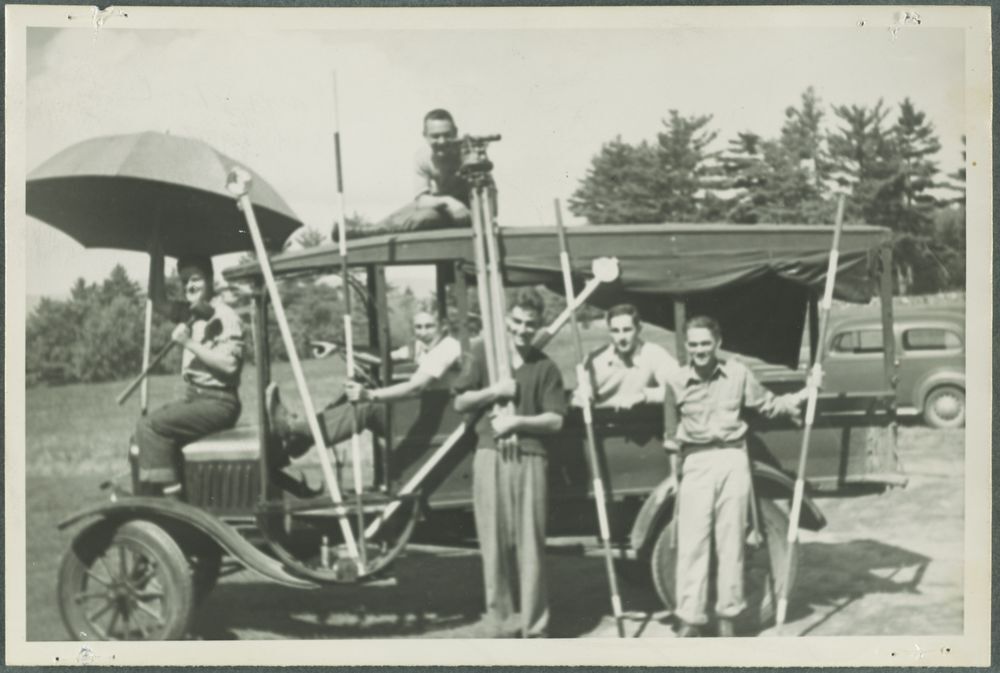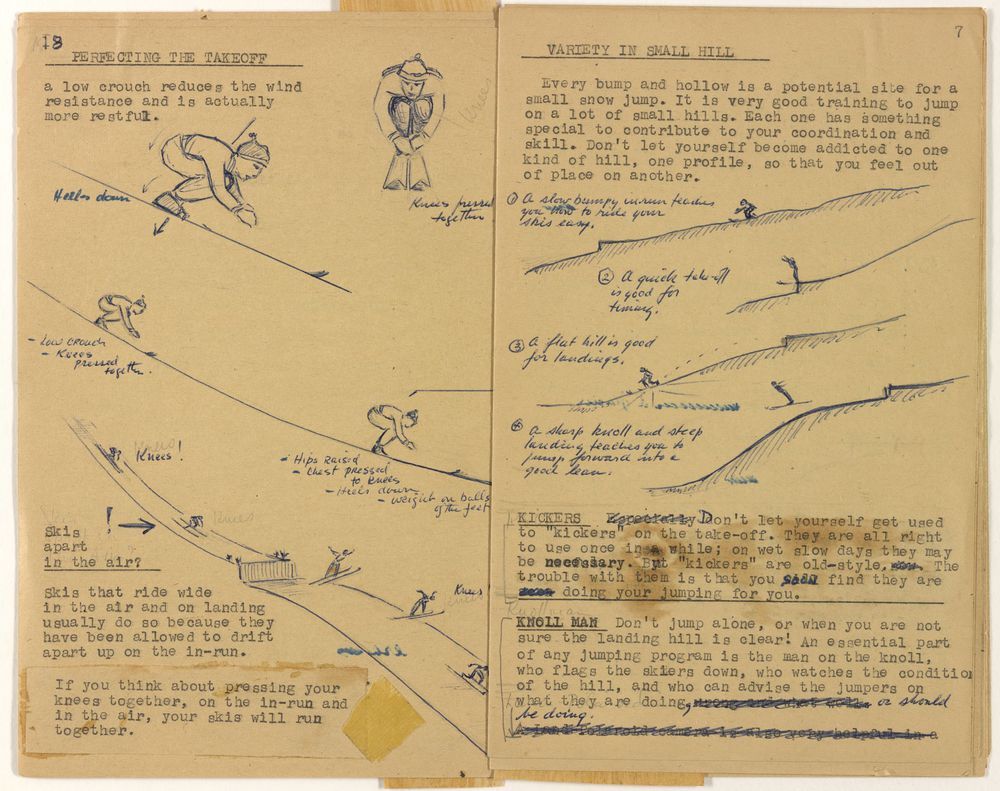Outdoors as Classroom
Dartmouth was founded on what, at the time, was the frontier of European America, and it is still the most rural of the Ivies. Its remote location and rural setting have become part of the institution’s lore and image. From John Ledyard’s famous paddle to the sea to the founding of the first collegiate outing club, the outdoors has played a role in the College’s development. The outdoors has been a place of play and pleasure for students as well as a place for education and innovation. Dartmouth played a major role in the development of skiing as a sport, but the outdoors has also served as a classroom in both the formal and informal sense; Thayer School students have surveyed the land, geology students have studied it, and environmental studies classes and clubs have worked to evaluate the human impact on nature. The Green, the Second College Grant, and the Connecticut River have all been incorporated into the College and its sense of place.
Previous: Going to Dartmouth -- Next: Intellectual Space: The Classroom Experience

